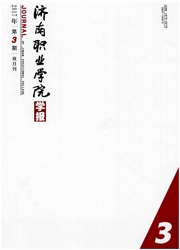

 中文摘要:
中文摘要:
The purpose of this study was to investigate the potential cardioprotection roles of Rapamycin in anoxia/reoxygenation(A/R) injury of cardiomyocytes through inducing autophagy, and the involvement of PI3k/Akt pathway. We employed simulated A/R of neonatal rat ventricular myocytes(NRVM) as an in vitro model of ischemial/reperfusion(I/R) injury to the heart. NRVM were pretreated with four different concentrations of Rapamycin(20, 50, 100, 150 μmol/L), and pretreated with 10 mmol/L 3-methyladenine(3MA) for inhibiting autophagy during A/R. Then, Western blot analysis was used to examine variation in the expression of LC3-Ⅱ, LC3-Ⅰ, Bim, caspase-3, p-PI3KⅠ, PI3KⅠ, p-Akt and Akt. In our model, Rapamycin had a preferential action on autophagy, increasing the expression of LC3-Ⅱ/ LC3-Ⅰ, whereas decreasing the expression of Bim and caspase-3. Moreover, our results also demonstrated that Rapamycin inhibited the activation of p-PI3KⅠ and enhanced the activation of p-Akt. It is concluded that Rapamycin has a cardioprotection effect by inducing autophagy in a concentration-dependent manner against apopotosis through PI3K/Akt signaling pathway during A/R in NRVM.
 英文摘要:
英文摘要:
The purpose of this study was to investigate the potential cardioprotection roles of Rapamycin in anoxia/reoxygenation(A/R) injury of cardiomyocytes through inducing autophagy, and the involvement of PI3k/Akt pathway. We employed simulated A/R of neonatal rat ventricular myocytes(NRVM) as an in vitro model of ischemial/reperfusion(I/R) injury to the heart. NRVM were pretreated with four different concentrations of Rapamycin(20, 50, 100, 150 μmol/L), and pretreated with 10 mmol/L 3-methyladenine(3MA) for inhibiting autophagy during A/R. Then, Western blot analysis was used to examine variation in the expression of LC3-Ⅱ, LC3-Ⅰ, Bim, caspase-3, p-PI3KⅠ, PI3KⅠ, p-Akt and Akt. In our model, Rapamycin had a preferential action on autophagy, increasing the expression of LC3-Ⅱ/ LC3-Ⅰ, whereas decreasing the expression of Bim and caspase-3. Moreover, our results also demonstrated that Rapamycin inhibited the activation of p-PI3KⅠ and enhanced the activation of p-Akt. It is concluded that Rapamycin has a cardioprotection effect by inducing autophagy in a concentration-dependent manner against apopotosis through PI3K/Akt signaling pathway during A/R in NRVM.
 同期刊论文项目
同期刊论文项目
 同项目期刊论文
同项目期刊论文
 期刊信息
期刊信息
